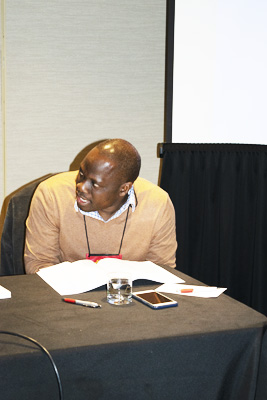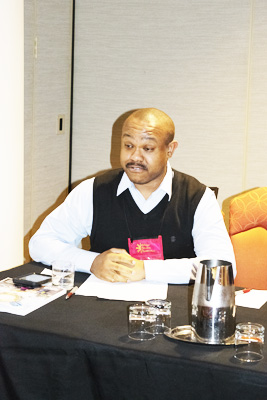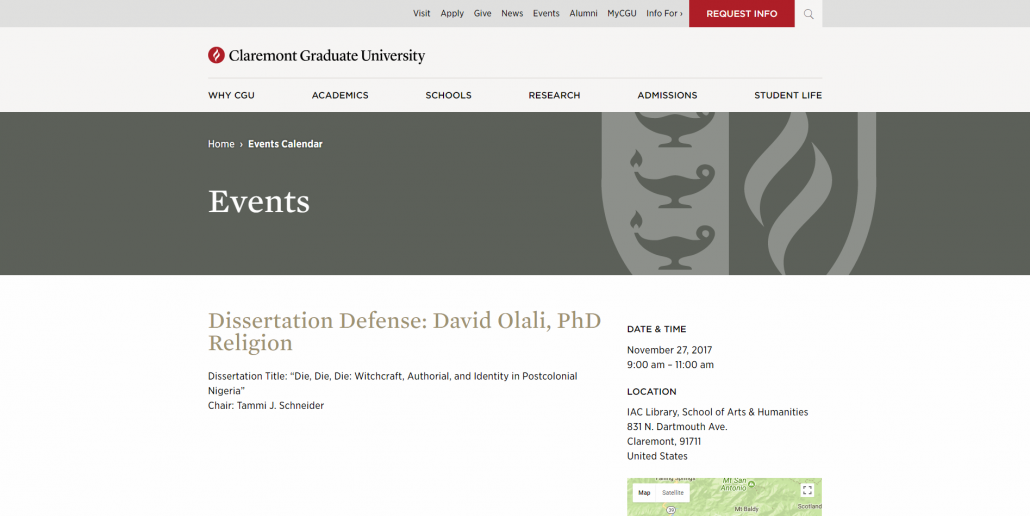Whiteness, Scripture, and Colonial Violence: A Critical Analysis of Reading Africa 2025 Discussion Series – Session I, June 4, 2024, by David Olali, PhD
On June 4, 2025, the African Studies Institute at the University of Georgia, in conjunction with Comparative Heritage Project, inaugurated the Reading Africa Summer 2025 Discussion Series, fostering interdisciplinary engagement among scholars in Religious Studies, Cultural Studies, Literary Studies, and several other fields of academic and disciplinary endeavors. The opening session centered its analytical lens on colonial discourses, specifically interrogating how religious texts and literary works have historically reinforced racial hierarchies, entitlement, and colonial violence in Africa. 
To thoroughly contextualize these discussions, we must trace European colonialism’s intellectual and historical roots in Africa. The Enlightenment period significantly shaped European perceptions, embedding racial ideologies into intellectual frameworks. Philosophers such as Immanuel Kant and G.W.F. Hegel notoriously positioned Africans as inferior in their philosophical writings, reinforcing Western intellectual justification for colonial domination. European pseudoscientific race theories, notably Social Darwinism, further entrenched these ideologies, proposing hierarchical distinctions between races. These theories legitimized colonial exploitation by depicting colonial conquest as a natural and necessary progression of humanity’s evolution.
L.E. Neame’s work, White Man’s Africa, particularly chapter one, “The White Man’s Title,” explicitly leverages justifications for apartheid, South Africa’s white colonialization of black people. Neame rationalizes a near-divine mandate to validate white supremacy and colonial rule, aligning his argument with broader colonial justifications prevalent in missionary activities across Africa layered on a pseudo-scientific mindset. In my article “White(ning) Scripture, the Invention of Satan, and a Heritage of Terror,” my analysis highlights how the selective manipretation (manipulation=mining of interpretations) of texts as scriptures constructed racialized binaries, casting Africans into roles of inferiority and demonization, thus facilitating Eurocentric and American systematic exploitation and cultural erasure.
Rudyard Kipling’s poem “The White Man’s Burden” was a literary cornerstone in propagating the paternalistic rhetoric of imperial duty. Kipling’s framing of colonialism as moral responsibility masked exploitative practices behind the veil of civilization, effectively perpetuating racialized myths of European superiority. Critical analyses of Kipling’s work from postcolonial theorists, such as Edward Said, further expose the ideological functions of these narratives, demonstrating how literature supported imperialist policies and racial subjugation.
Rider Haggard’s novel typifies colonial fantasy, depicting Africa as mysterious and exploitable. Haggard’s portrayals contributed significantly to constructing racial stereotypes that justified colonial domination by portraying Africans as primitives needing Western intervention. Through detailed literary analysis supported by scholars such as Patrick Brantlinger, who explores imperialism’s narrative strategies, Haggard’s role in perpetuating these harmful colonial stereotypes is critically examined.
Joseph Conrad’s novella presents colonialism’s ethical ambiguities, focusing on psychological and moral decay within European colonial enterprise. The text is simultaneously critical and complicit, eliciting profound debates among literary critics, notably Chinua Achebe, who famously accused Conrad of perpetuating racial stereotypes. This analysis draws from Achebe’s critiques, supplementing these with scholarly engagements from contemporary postcolonial scholars who evaluate Conrad’s narrative complexity and its lasting implications for colonial discourse. We will have a lot more discussions on Conrad during our subsequent sessions.
Colonial ideologies have lasting impacts on contemporary African socio-political and economic landscapes. Case studies highlighting continuing racial stratification, economic exploitation, and cultural erasure in former colonial states demonstrate colonial narratives’ persistent power. Examples from contemporary socio-political contexts in countries such as South Africa, Kenya, and Nigeria underscore colonial ideologies’ pervasive legacies, informing contemporary power dynamics, identity politics, and economic inequalities. Critical engagements with contemporary decolonial movements, influenced by scholars like Frantz Fanon and Ngũgĩ wa Thiong’o, highlight intellectual and practical attempts to dismantle these colonial legacies through education reform, cultural revitalization, and political activism.
The first session illuminated critical intersections between religious, literary, and colonial discourses, underscoring their roles in perpetuating racial hierarchies and violence. This analysis calls for continued interdisciplinary scholarship critically interrogating historical narratives and contemporary representations, contributing meaningfully to ongoing decolonization efforts. Future scholarship should further investigate these colonial narratives’ long-term socio-cultural impacts, specifically focusing on strategies for decolonizing knowledge production, education systems, and cultural representations. As much as the Reading Africa series is a bioproduct of CHP’s Heritage Conversation series, it also represents a crucial platform for interdisciplinary scholarly dialogue, fostering transformative understanding and advocating much-needed systemic change in mindset—a conscious mind shift.




